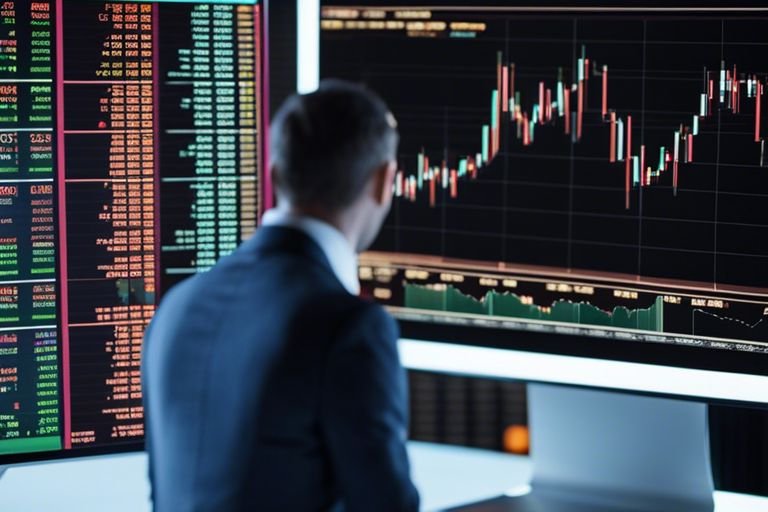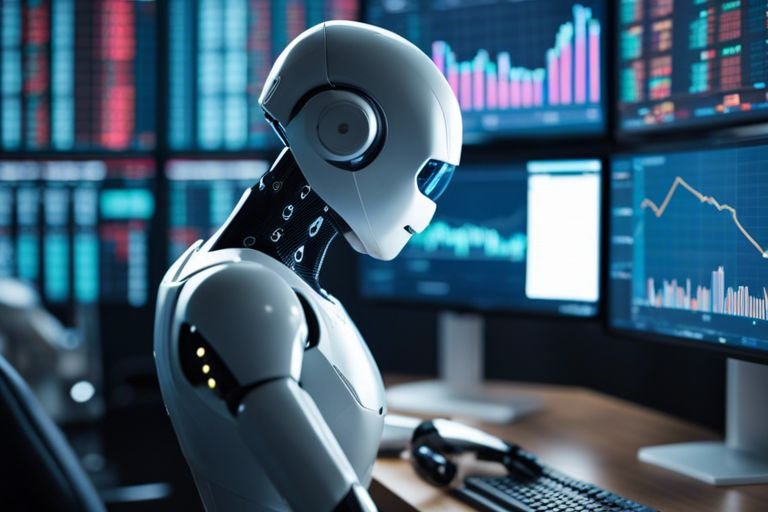Money in financial markets has always intrigued investors seeking profit opportunities. With the rise of artificial intelligence (AI), more and more people are turning to algorithms and machine learning to gain an edge in trading. While AI presents potential for speeding up processes, identifying patterns, and executing trades, it also comes with risks and challenges. Understanding how AI can be utilized in financial markets is crucial for anyone looking to explore this innovative technology for financial gain.
Understanding AI in Finance
The Role of Artificial Intelligence in the Financial Markets
Before submerging into the use of AI in financial markets, it’s crucial to understand its role. AI plays a significant role in financial markets by analyzing vast amounts of data at speeds that are impossible for humans. It helps in making predictions, identifying patterns, and making informed trading decisions.
Machine Learning vs. Traditional Financial Analysis
Any discussion about AI in finance wouldn’t be complete without comparing machine learning to traditional financial analysis. Machine learning algorithms have the advantage of adapting and improving from data inputs, whereas traditional financial analysis relies heavily on manual work and historical data analysis.
One major difference between machine learning and traditional financial analysis is the ability of machine learning algorithms to process and analyze massive amounts of data in real-time. This allows for more accurate predictions and faster decision-making processes. Additionally, machine learning can identify complex patterns that may not be apparent to human analysts, potentially leading to more profitable trading strategies.
Strategies for Utilizing AI in Trading
Algorithmic Trading Systems
For any investor looking to leverage AI in financial markets, Algorithmic Trading Systems offer a powerful tool. These systems use complex algorithms to execute trades at optimal times, speeds, and prices automatically. By removing human emotions and biases from the trading process, AI-driven systems can make split-second decisions based on pre-defined parameters, leading to potentially higher profits and reduced risks.
Predictive Analytics for Market Trends
Trading with Predictive Analytics involves using AI to analyze historical data, trends, and patterns to forecast future market movements. This powerful tool can help traders anticipate potential price changes, identify market opportunities, and mitigate risks. By leveraging AI algorithms, traders can make more informed decisions, positioning themselves advantageously in the market.
Understanding the intricacies of Predictive Analytics for Market Trends is crucial for successfully navigating the financial markets. While these tools can provide valuable insights and increase trading efficiency, it’s necessary to recognize their limitations. Relying solely on AI predictions without human oversight can expose investors to significant risks and potential losses, as the markets can be unpredictable and influenced by various external factors. It’s recommended to use AI as a supplement to thorough market analysis and not as a standalone strategy.
Risks and Challenges
Overfitting and Data Quality Concerns
The use of AI in financial markets comes with the risk of overfitting, where a model performs well on historical data but fails to generalize to new, unseen data. This can lead to significant financial losses if trading decisions are based on inaccurate or unreliable predictions. Ensuring high data quality and implementing robust validation techniques are crucial to mitigate this risk.
Ethical Considerations and Market Regulation
For ethical considerations and market regulation, transparency and fairness in AI algorithms are paramount. Market manipulation is a critical concern, and regulators closely monitor the use of AI in trading to prevent any illegal activities. Adherence to regulatory guidelines and ethical standards is necessary to maintain trust in the financial system.
Market participants must consider the impact of AI on market stability and the potential for algorithmic biases that could exacerbate existing inequalities. It is crucial to strike a balance between innovation and ethical responsibility to ensure the integrity and sustainability of financial markets.

How to Get Started with AI in Financial Markets
Key Resources and Tools for AI Trading
Unlike traditional trading methods, implementing AI in financial markets requires specific resources and tools to be successful. An vital resource is quality historical financial data that can be used to train your AI models effectively. Tools such as Python programming language, libraries like TensorFlow or PyTorch for machine learning, and platforms like MetaTrader for execution are crucial for building a robust AI trading system.
Building Your Own AI System vs. Using Pre-Built Solutions
Markets are flooded with pre-built AI trading solutions that promise quick profits with minimal effort. While these solutions can be tempting, building your own AI system offers several advantages. By developing your AI models, you have full control over the algorithms and data used, allowing for customization to suit your trading strategies. Additionally, you can ensure the transparency and security of your system, which is crucial in the financial markets.
Resources: When building your own AI system, it’s important to have a solid understanding of both AI and financial markets. Knowledge in areas such as data analysis, machine learning, and algorithmic trading is vital. It also requires a significant time investment to collect and clean data, develop and train models, and continuously optimize your AI system for changing market conditions.
Summing up
With this in mind, utilizing AI in financial markets can be a powerful tool for investors and traders looking to make more informed decisions and potentially increase their profits. However, it is important to remember that AI is not foolproof and carries its own risks. Understanding its limitations and continuously monitoring and adjusting the algorithms is crucial for success. While AI can certainly provide an edge in the market, human judgment and oversight are still imperative in navigating the complexities of the financial world.
FAQ
Q: Can AI be used to make money in financial markets?
A: Yes, AI can be used to make money in financial markets. AI technology can analyze large amounts of data at speeds far beyond human capability, identify patterns, and make predictions that can lead to profitable trading decisions.
Q: How is AI applied in financial market trading?
A: AI is applied in financial market trading through algorithms that can execute trades based on predefined criteria, machine learning models that can adapt to new information and market conditions, and natural language processing to analyze news and social media sentiment.
Q: What are the benefits of using AI in financial market trading?
A: The benefits of using AI in financial market trading include increased efficiency in analyzing data, the ability to process vast amounts of information quickly, reduced human error, and the potential for higher returns due to more informed decision-making based on data-driven insights.


